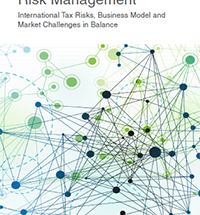31. December 2024
Reading Time: 6
Min.
news
Amendments to the RO e-Invoice, RO e-VAT and RO e-Transport systems and the Fiscal Code.
The authorities have introduced a series of legislative changes to the RO e-Factura, RO e-Transport, RO e-VAT systems, as well as corporate tax, income tax, VAT and accounting law.
- Amendments to the RO e-Invoice system, effective as of 1 January 2025
The submission of electronic invoices will no longer be mandatory for two categories of B2B transactions:
- invoices for the supply of goods and the provision of services, where the place of supply or provision is outside of Romania;
- invoices for intra-community supplies of goods, where the beneficiary established in Romania provides a VAT number from another member state.
Simplified invoices issued in business-to-business (B2B) and business-to-consumer (B2C) relationships must be submitted via the RO e-Invoice system, with the exception of fiscal receipts that meet the conditions of a simplified invoice (prior to 31.12.2024, it was not required to submit simplified invoices via the RO e-Invoice system).
The rules set out in the Fiscal Code regarding the content of simplified invoices have been amended. From 1 January 2025, simplified invoices must also include the VAT number or tax identification code of the beneficiary, where the latter is a taxable person or a non-taxable legal person.
The obligation to use the RO e-Invoice system in business-to-consumer (B2C) relationships remains in place starting with 2025. However, it has been clarified that companies are not required to collect the personal identification numbers (CNP) of individuals when submitting B2C invoices through the system. If the beneficiary, a natural person, does not provide a tax identification code, invoices will be issued using a code consisting of 13 zeros in place of the beneficiary’s tax identification code.
In the case of operations conducted under public procurement contracts, sectoral acquisitions and concessions of works or services, issuers are required, as of 1 January 2025, to include on B2G invoices the relevant CPV codes from the public procurement reference nomenclature.
- Amendments to the RO e-Transport system
The imposition of fines for failing to report the international road transport of goods with low fiscal risk via the RO e-Transport system by companies holding, at the date of the transport, the status of authorised economic operators, as per Article 38 of Regulation (EU) 952/2013 of the European Parliament and of the Council of 9 October 2013 laying down the Union Customs Code, has been postponed until 31 March 2025.
- Amendments to the RO e-VAT system
The obligation on taxpayers to submit the results of verifications carried out with respect to the differences listed in the “RO e-VAT Compliance Notification” and the application of sanctions in the event of a failure to meet this requirement have been postponed until 1 July 2025.
Prior to 1 July 2025, the “RO e-VAT Compliance Notification” will not be taken into consideration when determining tax risk.
- Amendments to the Fiscal Code
a. Value Added Tax
- Reverse charge mechanism: if the taxable amount in transactions to which the reverse charge mechanism is applied becomes subject to adjustments, and where the supplier of goods/service provider does not issue a correction invoice, the beneficiary obliged to pay the tax must issue a self-invoice to adjust the taxable amount and amount of deductible VAT. The self-billing invoice must be issued by the fifteenth day of the month following the one in which the event giving rise to the VAT adjustment occurred.
b. Corporate income tax and turnover specific tax
- Exceeding borrowing costs: it has been clarified that the ratio of non-deductible exceeding borrowing costs relating to transactions with third parties and/or affiliates financing the acquisition/production of fixed assets in progress/eligible assets in the total non-deductible exceeding borrowing costs is to be determined prior to applying the 30% deductibility threshold (from the fiscal EBITDA).
- Turnover specific tax: credit institutions and taxpayers operating in the oil and gas sectors that pay specific turnover tax (in addition to corporate income tax) in accordance with art. 461 and 462 of the Fiscal Code are exempt from paying the minimum turnover tax provided for in art. 181 of the Fiscal Code (IMCA).
In case of tax groups for corporate tax purposes, the provisions regarding the specific turnover tax payable by credit institutions (art. 461) and taxpayers in the oil and gas sectors (art. 462) are applied by each member, depending on their individual situations.
c. Income tax
- Income from the transfer of use of property: if the gross income is paid exclusively in kind or the amounts representing guarantees are used to settle the contractually agreed rent, the owner/usufructuary/other legal holder who is a natural person is obliged to establish the annual net income by deducting from the gross income the amount of expenses determined by applying the 20% quota to the gross income. In addition, the natural person is obliged to calculate, declare and pay the corresponding income tax. The annual income tax is declared by submitting the single tax return.
The obligation to declare, calculate and pay income tax also rests with the owner/usufructuary/other legal holder who is a natural person in cases where the rents due by entities relate to contractual periods falling after 1 January 2024 but paid in advance by 31 December 2023.
- come from the transfer of a de facto possession: income derived by individuals from the transfer of a de facto possession recorded in the land register represents either (i) non-taxable income, if the transfer is made on the basis of cause of death documents, or (ii) taxable income from other sources, if the transfer is made via documents between living persons.
- Pension income from abroad: pension income, other than privately managed, voluntary or occupational pensions, obtained from abroad is subject to taxation in the form of the 10% tax rate on gross annual income minus the monthly non-taxable amount of RON 3,000.
The above-mentioned provisions also apply to privately managed, voluntary or occupational pensions received from abroad, where the taxpayers do not have access to documents pertaining to the net contributions made to these funds.
5. Amendments to accounting law
As of 2025, the frequency at which trial balances are to be prepared will change. More precisely, as per Emergency Ordinance no. 138/2024, in order to verify the correct recording of transactions in the accounting records, trial balances will be prepared monthly.
The annual financial statements and accounting reports must be signed by both the legal representative and the chief financial officer, the chief accountant or another person authorised to fulfil this role.
The following fixed deadlines have been established for the submission of annual financial statements:
- 31 May of the financial year following the reporting year for: companies regulated by Law no. 31/1990, national companies, autonomous administrations, national research and development institutes, branch offices without legal personality in Romania that belong to legal entities established abroad, with the exception of branch offices opened in Romania by companies resident in European Economic Area countries.
- 30 April of the financial year following the reporting year for the other legal entities.
The deadline for submitting accounting reports has also been established as 31 May of the financial year following the reporting year.
For entities that have chosen a financial year different from the calendar year, the deadline for submitting their financial statements remains either 150 or 120 calendar days (depending on the category of reporting entity) from the end of the chosen financial year, starting with the day after the date to which the respective annual financial statements refer. If the above-mentioned dates fall on non-working days, the last reporting day will be the first working day after that.
Starting with the 2025 financial year, or the first financial year different from the calendar year beginning after 1 January 2025, all annual financial statements and accounting reports are to be submitted exclusively in electronic format, in keeping with the specifications published by the National Agency for Fiscal Administration (ANAF).
For public institutions, the retention period for financial statements is 10 years and, as of 1 January 2026, public institutions will also be required to submit exclusively in electronic format the forms relating to financial statement reporting, financial situation reports, notes and any other documents accompanying the financial statements.
Source: Emergency Ordinance no. 138 amending and supplementing various legislative acts in the fiscal-budgetary field, as well as regulating other measures, published on 5 December 2024.






